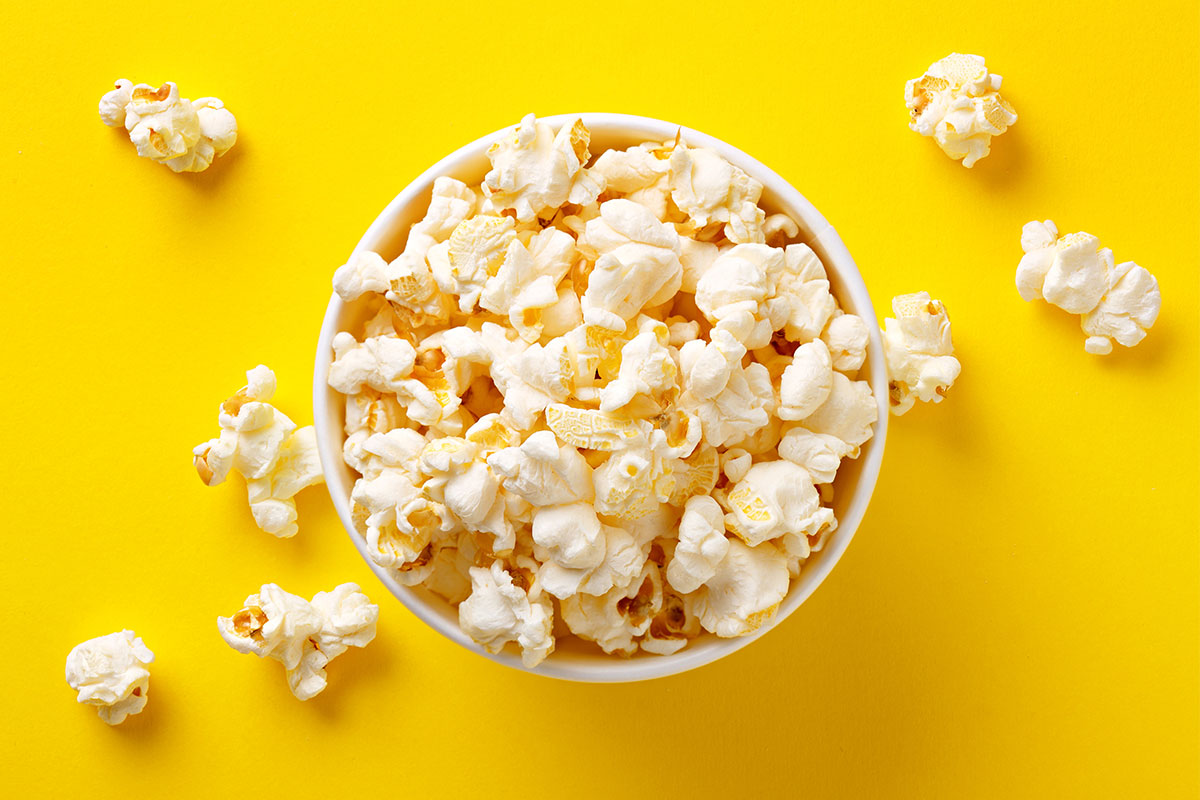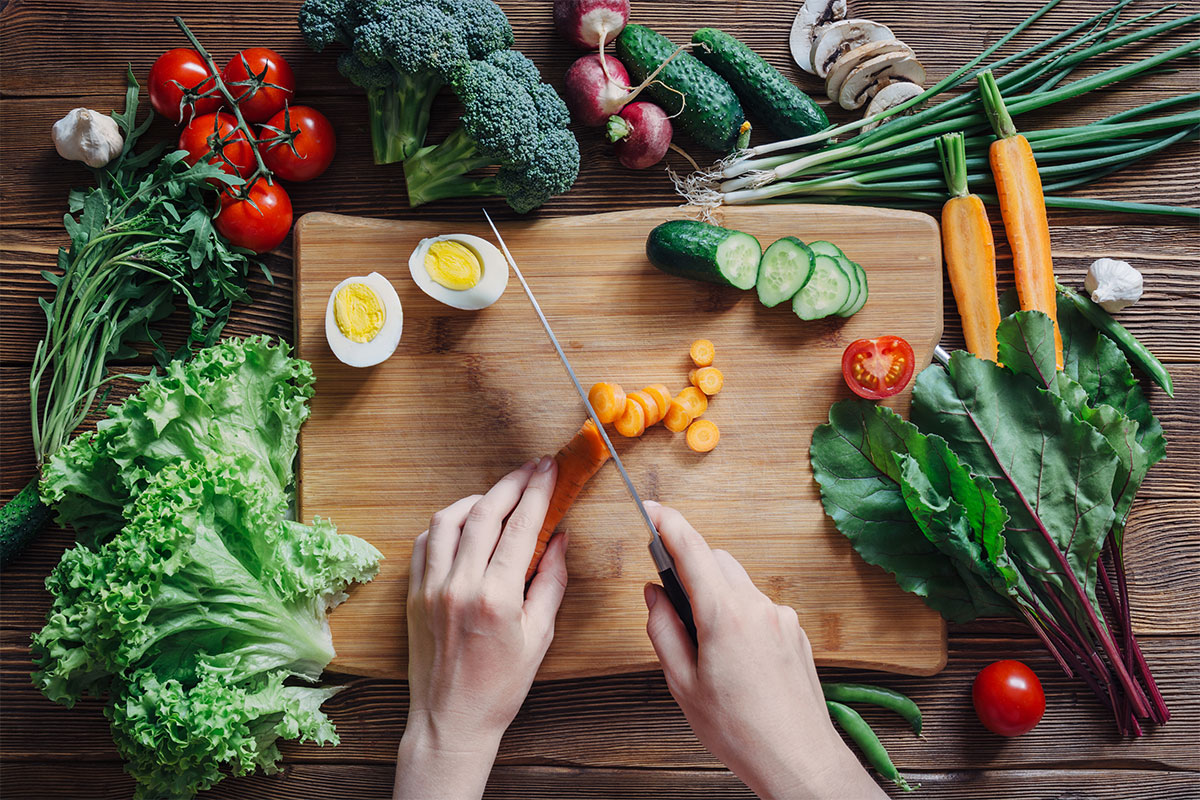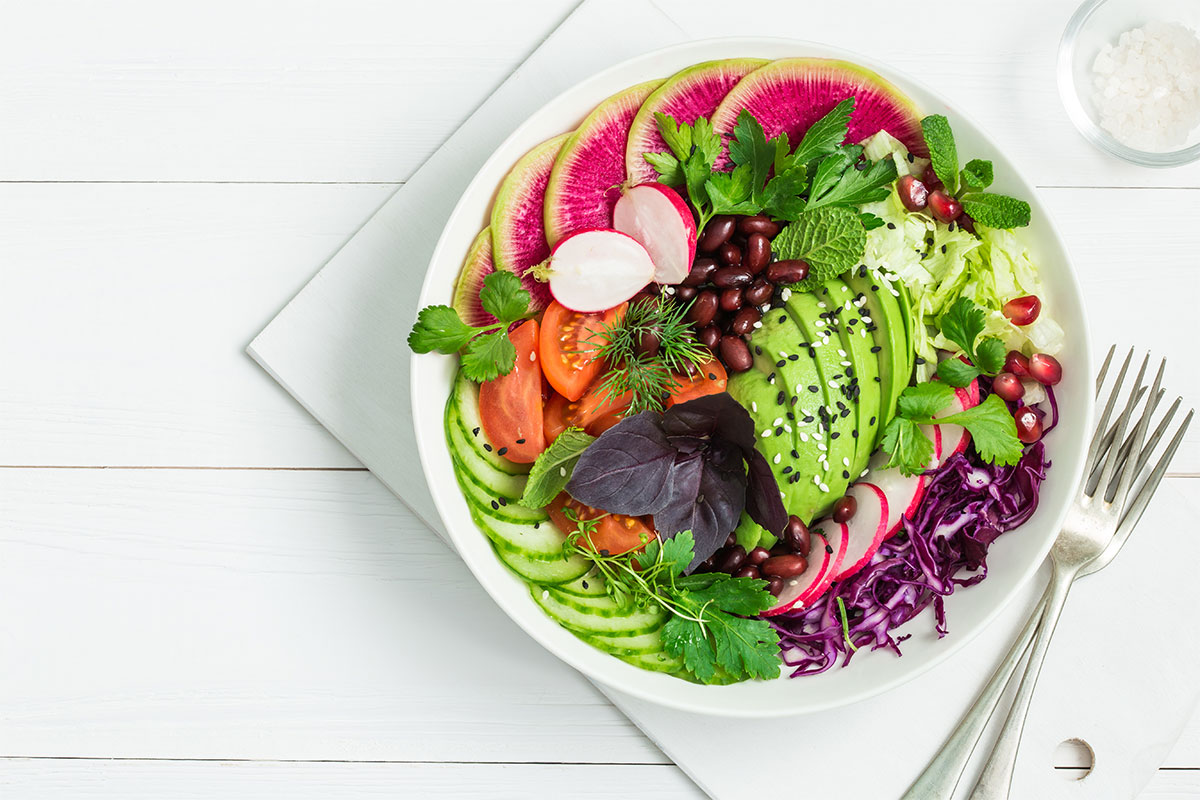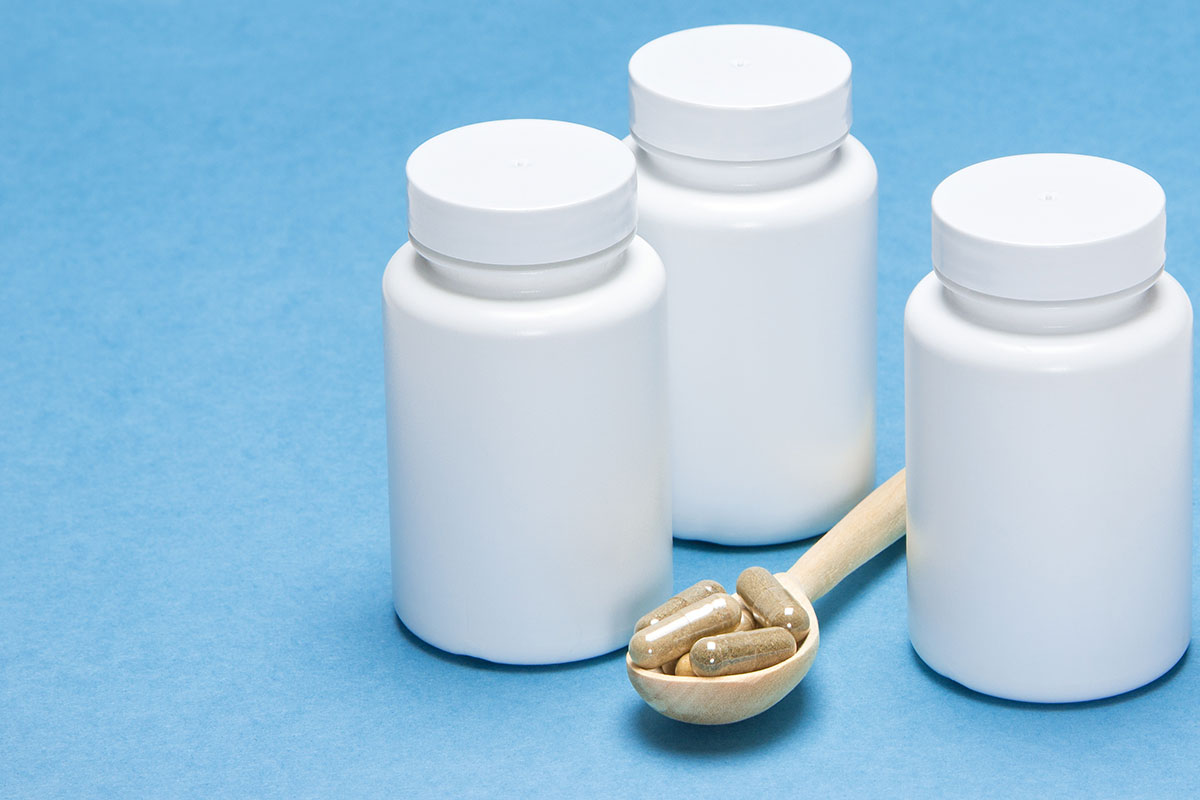Why am I Gaining Weight Despite Diet and Exercise? │ QA
If you’re careful with your nutrition, working out weekly, and still experiencing problems with your weight, take a moment to read this QA.


I try to gain muscle by eating a lot. Unfortunately, I have high blood pressure, high cholesterol, and diabetes. After joining LA Fitness, my weight has gone down and I’m still skinny. How can I grow some muscle so that I won’t scare people away due to looking like a skeleton? I appreciate you very much for your help!
– Kristine K.

Given your multiple conditions, you should consult with a Registered Dietitian Nutritionist for personalized advice according to your lab values and medications. If you choose to incorporate the following nutritional recommendations, do so only if you are under routine physician’s care for your blood pressure, cholesterol, and blood sugar. These suggestions focus on nutrient density for muscle growth.
Include 1-2 tablespoon of raw nuts daily. Full of heart-healthy fats and calories with a little fiber, these won’t raise blood sugar or blood pressure. One ounce of almonds provides 164 calories.
Use tortillas instead of bread. Increased density without the pockets of air from leavened bread means more energy per bite. By turning to burritos or wraps in place of toast and sandwiches, you could add 100 calories to each meal (10-12” flour tortilla = ~220-350 Cals vs. 2 slices regular bread = 150 Cals).
Focus on potassium and energy-rich produce. Bananas, sweet potatoes, peas, and avocados are notably high in potassium which is important for proper fluid balance and thus blood pressure. Winter squash and beans are also significant plant sources with notable calories.
Increase eating sessions instead of volume. More frequent servings allow your body to better process your food without overload. By giving yourself a bonus low-sodium snack before bedtime, you can add calories without spiking your blood pressure and blood sugar.
Maximize your workouts. You’re not going to grow muscle tissue by eating alone! Muscles need a greater stress than they currently experience in order to increase in size and strength. Meet with a Pro Results® personal trainer for the best instruction on specific exercises to grow muscle.
– Debbie J., MS, RD
This article should not replace any exercise program or restrictions, any dietary supplements or restrictions, or any other medical recommendations from your primary care physician. Before starting any exercise program or diet, make sure it is approved by your doctor.
Some questions have been edited for length and/or clarity.
 Have a nutrition question? Our registered dietitian is ready to help!
Have a nutrition question? Our registered dietitian is ready to help!
Email nutrition@lafitness.com or submit your question below and it may be featured in an upcoming article!
If you’re careful with your nutrition, working out weekly, and still experiencing problems with your weight, take a moment to read this QA.
Blood sugar control isn’t easy. These are Debbie’s top recommendations for how to address weight control with Type II Diabetes.
Does Intermittent Fasting give you enough time to pack the day's protein? Our registered dietitian helps clear up the confusion!


I have trouble staying full between meals and while in class and at work. I usually reach for a lot of protein. I know I am consuming more than I need, but how much is too much? And what are some food ideas that can help me stay satisfied without a ton of protein? I would especially like some recipes with a lot of fiber. I am a 19-year-old woman and working with a trainer to build muscle and lose weight.
– Patricia C.

The US RDA for protein is only 46 grams for a 19-year-old woman of reference bodyweight (approx. 126 lbs.), based on 0.8 gm protein per kg, though individual requirements can vary from 0.5 gm/kg/d to 1.0 gm/kg/d. In an energy-balanced diet for weight maintenance, the recommended limit for protein is 35% of calories to reduce the risk of chronic disease. To allow caloric room for phytonutrients from plants, one should consider limiting animal protein to 6-8 oz. daily plus 1 cup cow’s milk product, depending on energy needs. Of course, you could meet all your protein needs from plant sources, too.
For higher fiber filling snacks without ‘a ton’ of protein try these portable suggestions: air-popped popcorn and cashews; freeze-dried corn, peas & carrots; soynuts; sugar snap peas; individual hummus tub, celery & carrot sticks; veggie chips; apple and peanut butter;
Don’t forget to start your day with a decent breakfast to stave off hunger throughout the day! If you base your first repast on oatmeal with nuts + dried fruit or home-fried potatoes with onions + peppers, then add a protein like eggs on the side, you’ll have a complete robust and balanced meal.
Resource:
– Debbie J., MS, RD
This article should not replace any exercise program or restrictions, any dietary supplements or restrictions, or any other medical recommendations from your primary care physician. Before starting any exercise program or diet, make sure it is approved by your doctor.
Some questions have been edited for length and/or clarity.
 Have a nutrition question? Our registered dietitian is ready to help!
Have a nutrition question? Our registered dietitian is ready to help!
Email nutrition@lafitness.com or submit your question below and it may be featured in an upcoming article!
If you’re careful with your nutrition, working out weekly, and still experiencing problems with your weight, take a moment to read this QA.
Blood sugar control isn’t easy. These are Debbie’s top recommendations for how to address weight control with Type II Diabetes.
Does Intermittent Fasting give you enough time to pack the day's protein? Our registered dietitian helps clear up the confusion!


I am a 29-year-old male, I’m fairly active, and would like to lose 5% of my body fat. I decided to start tracking my daily calories and set a goal of creating a 500-1,000 calorie-per-day deficit. I know that my resting metabolic rate is 1,850 calories and I’ve been tracking all my steps, exercises, and time spent at the gym to sum into my total calories OUT. Typically, I burn ~2,000+ to 2,500+ calories depending on the day. The problem has been that a 1,500 to 2,000 calorie diet usually leaves me feeling very hungry, and sometimes low on energy. I cut out dairy, bread, and sugar but I still eat lean meats, rice, quinoa, and veggies. Is my 1,500 to 2,000 calorie intake too low, or do I just need to find different low-cal foods to fill me up?
– Bill Z.

Bill, your question seems to already have answered itself in the description of your situation. You state you are usually hungry and low on energy, which would imply you’re eating less than normal, which you are trying to do. You’ve determined how many calories you’re expending but did not seem to track your previous energy intake to get your average baseline consumption. You’re working under the assumption that your personal body chemistry was following an equation* to begin with (rarely the case). Thus, your self-determined deficit appears to be from an expenditure calculation and not from analysis of your original diet intake.
What I’m trying to say is that it’s very likely that you were maintaining weight before on a much higher calorie intake, thus 2,500 Cals/day could be reduced enough from your true metabolic rate to assist with weight loss. By eating 2,000-2,500 calories/day for a while you will soon find out a) if satiety and energy improve, and b) whether weight loss is achievable at that level.
“To achieve weight loss while also maintaining RMR, calorie intake should be reduced by no more than 500 calories per day…” – Mark P. Kelly, PHD of the American Council on Exercise
* Whether your stated 1,850 RMR was calculated or extrapolated from a brief indirect calorimetry measurement, it may not reflect your actual physiological energy balance over 24 hours as it doesn’t take into account personal factors like digestion/absorption efficiency, level of stress, and sleep quality.
Resources:
– Debbie J., MS, RD
This article should not replace any exercise program or restrictions, any dietary supplements or restrictions, or any other medical recommendations from your primary care physician. Before starting any exercise program or diet, make sure it is approved by your doctor.
Some questions have been edited for length and/or clarity.
 Have a nutrition question? Our registered dietitian is ready to help!
Have a nutrition question? Our registered dietitian is ready to help!
Email nutrition@lafitness.com or submit your question below and it may be featured in an upcoming article!
If you’re careful with your nutrition, working out weekly, and still experiencing problems with your weight, take a moment to read this QA.
Blood sugar control isn’t easy. These are Debbie’s top recommendations for how to address weight control with Type II Diabetes.
Does Intermittent Fasting give you enough time to pack the day's protein? Our registered dietitian helps clear up the confusion!


I am a vegetarian and I’m finding it very hard to lose weight and gain muscle as much of the food that is available to me is either very high in carbs or made of some sort of soy protein (which I know isn’t the best for weight loss). Do you have any pointers or tips to help me eat cleaner and lose weight?
– Sophia K.

As plants are mostly carbohydrate-based, you’re bound to eat a greater proportion of your calories from carbs as a vegetarian. There are plenty of higher protein and higher fat grains, legumes, and vegetables, though! Use quinoa, lentils, chickpeas, and cannellini beans in place of pasta and rice. Try a variety of nuts and raw or toasted seeds to complement an assortment of vegetables and seasonings. Incorporate avocado, olives, and coconut to fill out your meals and provide healthy fats and promote satiety.
If you’re looking for items premade with an alternative protein but are not finding non-soy options locally, you can always order such products online. To eat cleaner, you’ll need to prepare more of your own food from raw ingredients rather than shop for products. In the greater Toronto area there are some good health food stores in which you can find seeds, nuts and bulk grains and legumes.
Here are a couple of my favorite moderate carbohydrate vegetarian meals:
Read our answers to similar questions here: Gaining Muscle, Losing Belly Fat: Vegetarian Edition | Q+A and My Weight Loss Has Plateaued… Any Advice?
– Debbie J., MS, RD
This article should not replace any exercise program or restrictions, any dietary supplements or restrictions, or any other medical recommendations from your primary care physician. Before starting any exercise program or diet, make sure it is approved by your doctor.
Some questions have been edited for length and/or clarity.
 Have a nutrition question? Our registered dietitian is ready to help!
Have a nutrition question? Our registered dietitian is ready to help!
Email nutrition@lafitness.com or submit your question below and it may be featured in an upcoming article!
If you’re careful with your nutrition, working out weekly, and still experiencing problems with your weight, take a moment to read this QA.
Blood sugar control isn’t easy. These are Debbie’s top recommendations for how to address weight control with Type II Diabetes.
Does Intermittent Fasting give you enough time to pack the day's protein? Our registered dietitian helps clear up the confusion!


Is there a supplement recommended for weight loss?
– Christian H.

Speaking only of pills, tablets or individual ingredients (not enhanced protein powders) there are a few items that show promise for weight reduction. Do not take these as my recommendation or endorsement — I am just trying to answer your question. Because there is a lack of strong evidence of efficacy, none can be recommended specifically for weight loss. Most physicians agree that no weight-loss supplements meet criteria for recommended use.
GREATEST research / LARGE number of participants
FEW studies / SMALL sample sizes
References:
– Debbie J., MS, RD
This article should not replace any exercise program or restrictions, any dietary supplements or restrictions, or any other medical recommendations from your primary care physician. Before starting any exercise program or diet, make sure it is approved by your doctor.
Some questions have been edited for length and/or clarity.
 Have a nutrition question? Our registered dietitian is ready to help!
Have a nutrition question? Our registered dietitian is ready to help!
Email nutrition@lafitness.com or submit your question below and it may be featured in an upcoming article!
If you’re careful with your nutrition, working out weekly, and still experiencing problems with your weight, take a moment to read this QA.
Blood sugar control isn’t easy. These are Debbie’s top recommendations for how to address weight control with Type II Diabetes.
Does Intermittent Fasting give you enough time to pack the day's protein? Our registered dietitian helps clear up the confusion!
Be the first to know about exclusive
content, deals and promotions